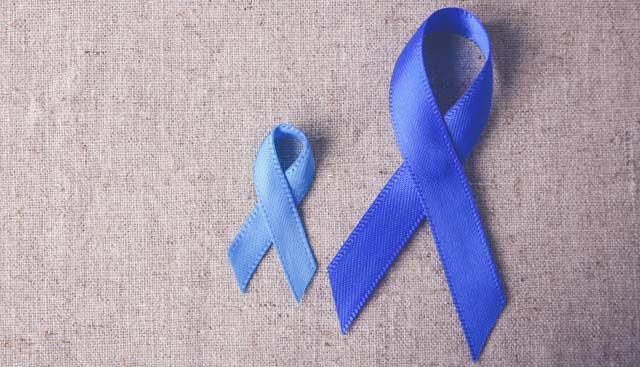
March Is Colorectal Cancer Awareness Month – Protect Yourself by Learning More About This Often Preventable Condition
Colorectal cancer is sometimes referred to as a “silent cancer,” mainly because it often produces no symptoms until it reaches an advanced stage. This is one of the reasons why colorectal cancer has become the second-leading cause of cancer deaths in America. But, it can often be prevented or cured, and the key may be as simple as having a routine screening test like a colonoscopy.
During March of each year, Moffitt Cancer Center focuses on spreading the word that colon cancer screening saves lives. Typically, the condition begins as one or more small, slow-growing polyps that develop in the colon or rectum. Left unchecked, these precancerous growths can gradually transform into cancer over time. By following a physician’s recommendations on when and how to be screened (individuals of average risk should begin colon cancer screening at the age of 50), it is often possible to detect precancerous polyps and early-stage colorectal cancer and have them removed before they cause problems.
While screening is the most important step you can take to prevent colorectal cancer, it’s not the only one. By making some positive lifestyle changes, you may be able to further lower your risk level. For instance, you are encouraged to:
- Maintain good nutrition — Consuming a balanced diet that is high in fruits and vegetables and low in fats, sugars and red and processed meats can lower your risk of developing many health-related conditions, including colorectal cancer. Plant-based foods in particular are good sources of phytochemicals, which can help protect against cellular damage that can lead to cancer. Additionally, because many plant foods are low in calories, they can help you maintain a healthy body weight, which is also important for reducing colorectal cancer risk.
- Exercise regularly — People who are overweight or obese are more likely to develop colon polyps, a possible precursor to cancer. Studies show that performing 30 to 60 minutes of moderate to vigorous physical activity every day is a good way to achieve and maintain a healthy body weight.
- Know your family health history — If you have an immediate family member (parent or sibling) who was diagnosed with colorectal cancer, you may have an elevated risk of developing the condition yourself. Your physician can take this into account when recommending an appropriate screening plan for you.
- Avoid tobacco use and alcohol consumption — Smoking is associated with colorectal cancer, and the longer a person smokes, the greater his or her risk. Additionally, people who regularly consume 3.5 alcoholic beverages per day have approximately 1.5 times the risk of developing colorectal cancer as nondrinkers and occasional drinkers.
If you’d like more information about colorectal cancer screening and other ways to lower your risk, you can arrange to talk with the experts at Moffitt Cancer Center by calling 1-888-663-3488 or completing our new patient registration form online. No referrals are necessary.
